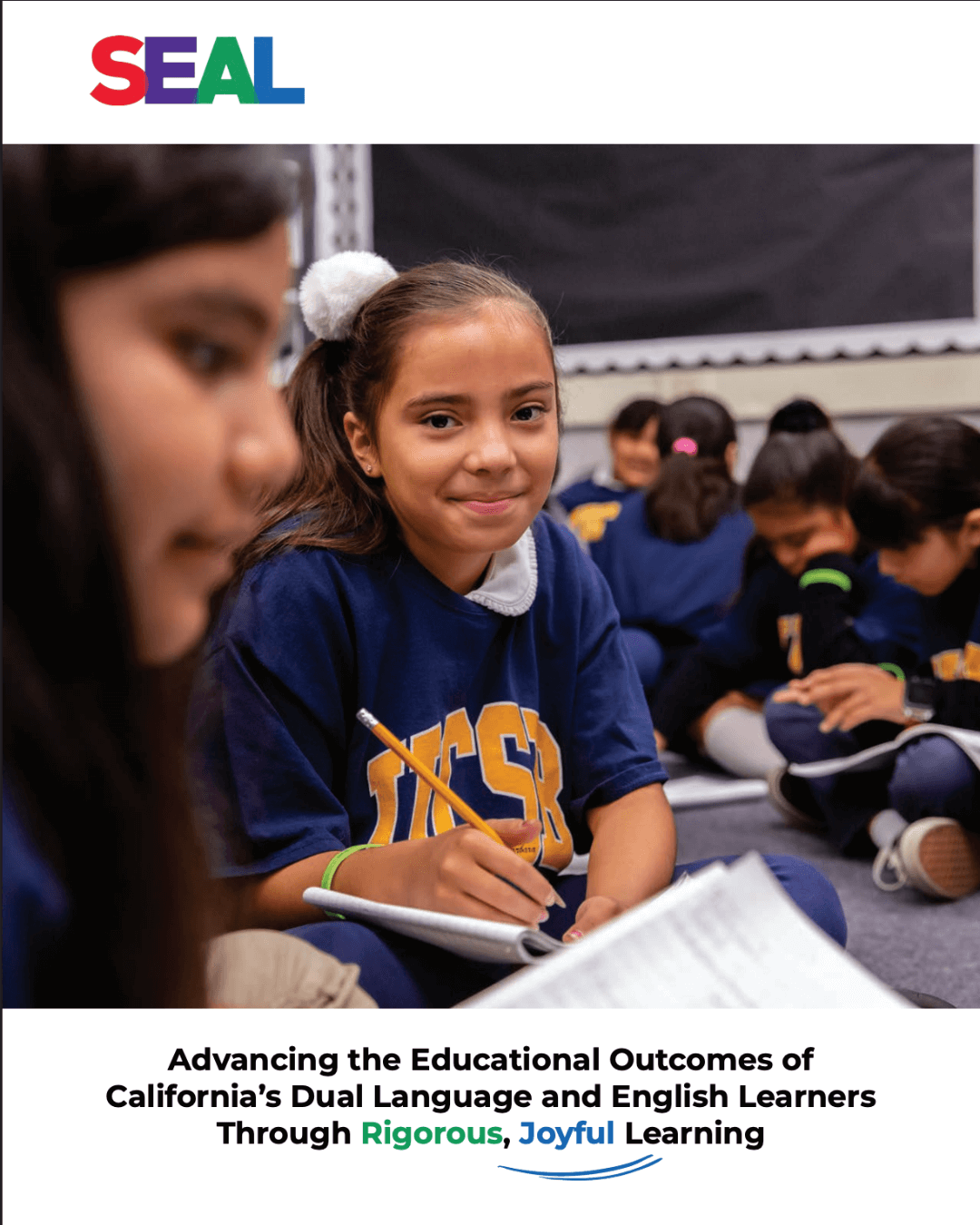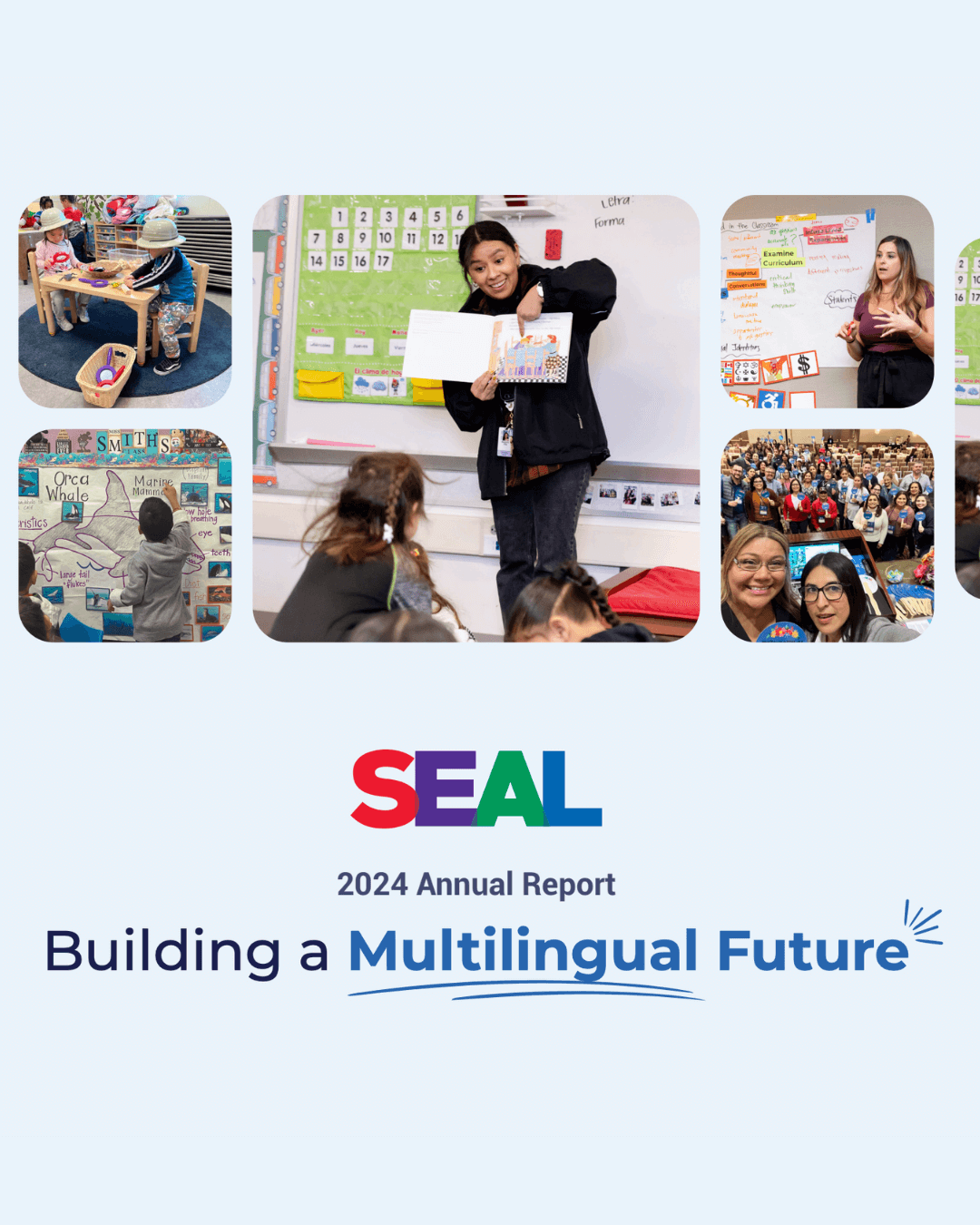Research
Explore our published insights designed to help advance the field’s understanding of what works for English Learners, Dual Language Learners, and Multilingual Learners.


SEAL Overview Impact Report
SEAL’s Overview Impact Report showcases our mission, reach, and lasting influence on multilingual learners. Explore our story, see our statewide impact, learn how our pedagogy centers English Learners, and discover key lessons from our work with schools and communities.
%20copy.png)
Key Lessons from Over a Decade of Impact
When schools center language, culture, and community, English Learners don’t just succeed—they thrive. We’ve identified eight key lessons about what it truly takes to create schools where multilingual learners flourish. Download to read more about these key lessons.

SEAL's 11 High-Leverage Pedagogical Practices
Our 11 High-Leverage Pedagogical Practices equip educators to create rigorous, joyful, and language-rich classrooms where every student succeeds. By integrating students’ linguistic and cultural assets, SEAL fosters a learning environment that values home languages and empowers diverse learners to reach their full potential.

SEAL 2024 Annual Report
SEAL’s 2024 Annual Report highlights a year of growth, impact, and advocacy for multilingual learners. Explore stories, data, and milestones that showcase how we’re advancing educational equity and building a brighter future for all students.
Latest Presentations


Ways to Ensure English Learners Benefit from the Science of Reading
SEAL and New America convened a distinguished panel of experts from across the nation to delve into the critical relationship between the Science of Reading and English Learners.

Aligning Science of Reading Policies with the Needs of English Learners
On February 8, New America and SEAL will co-hosted a webinar that unpacked the relationship between the Science of Reading and ELs, including the misconceptions about this much debated topic and its impact on students identified as ELs and dual language programs. The first panel of experts discussed the policy implications of the Science of Reading for ELs, and the second panel featured state, district and instructional leaders at the forefront of Science of Reading implementation.

Strengthening Family Partnerships to Promote Bilingual Pride at Home and in the Classroom(CABE 2024)
This workshop offers effective practices and strategies to build family partnerships that foster strong community engagement and empower families to take an active role in students’ learning.

Taller para familias – Promoviendo el bilingüismo: Compartiendo nuestras historias (CABE 2024)
Este taller le proveerá herramientas, y estrategias sobre cómo promover el bilingüismo en casa usando las mejores prácticas basadas en la investigación del modelo SEAL
.png)
Supporting Bilingualism in Preschool and Transitional Kindergarten (CABE 2024)
This session will explore current research on meeting the needs of young DLLs, particularly in the area of oral language development in both their home language and English.

Leading for Equity: The Power of Dual Language Programs (CABE 2024)
Dual language programs are a transformative resource to create equitable classrooms that multilingual students deserve.
%201.svg)